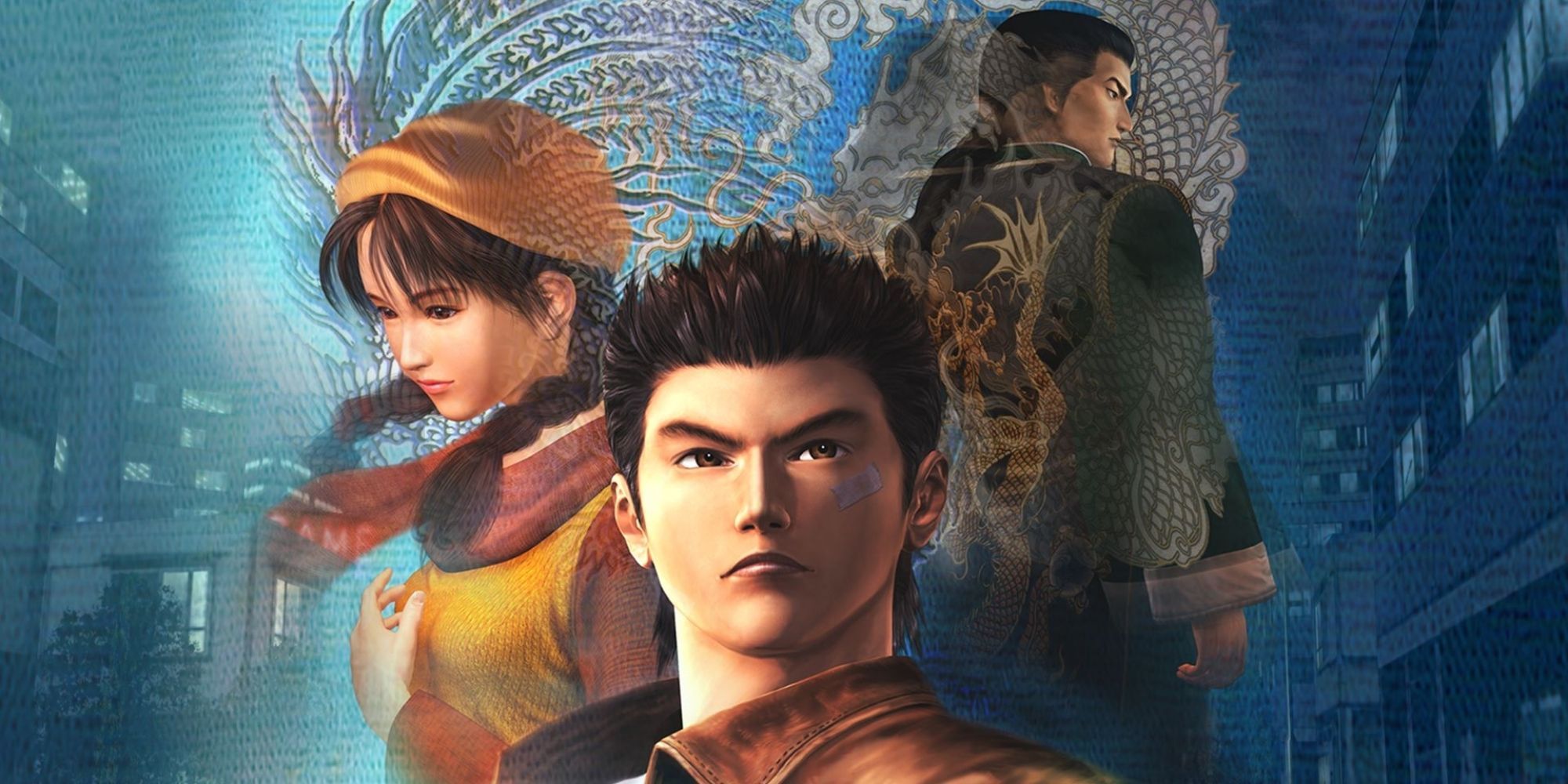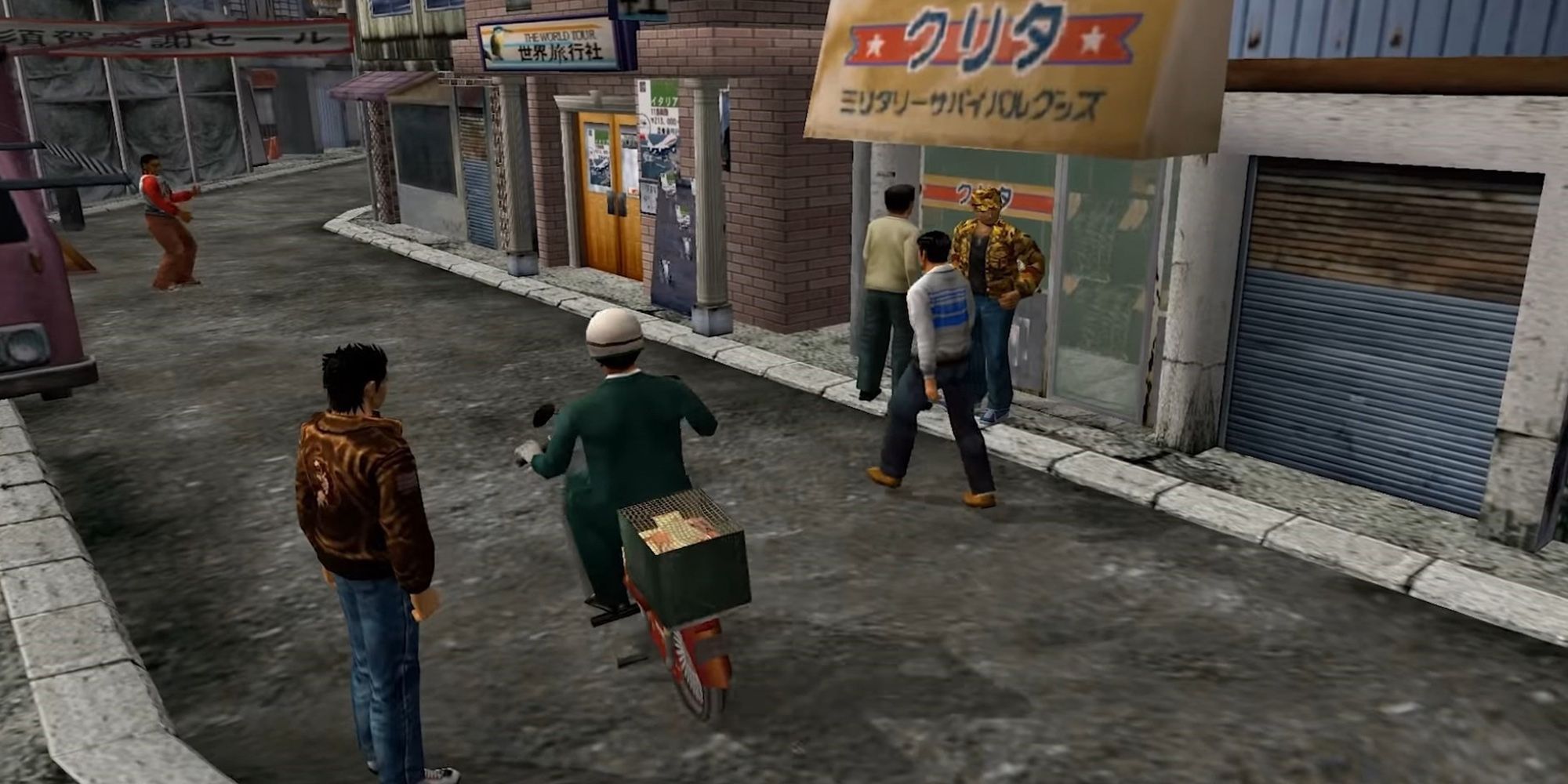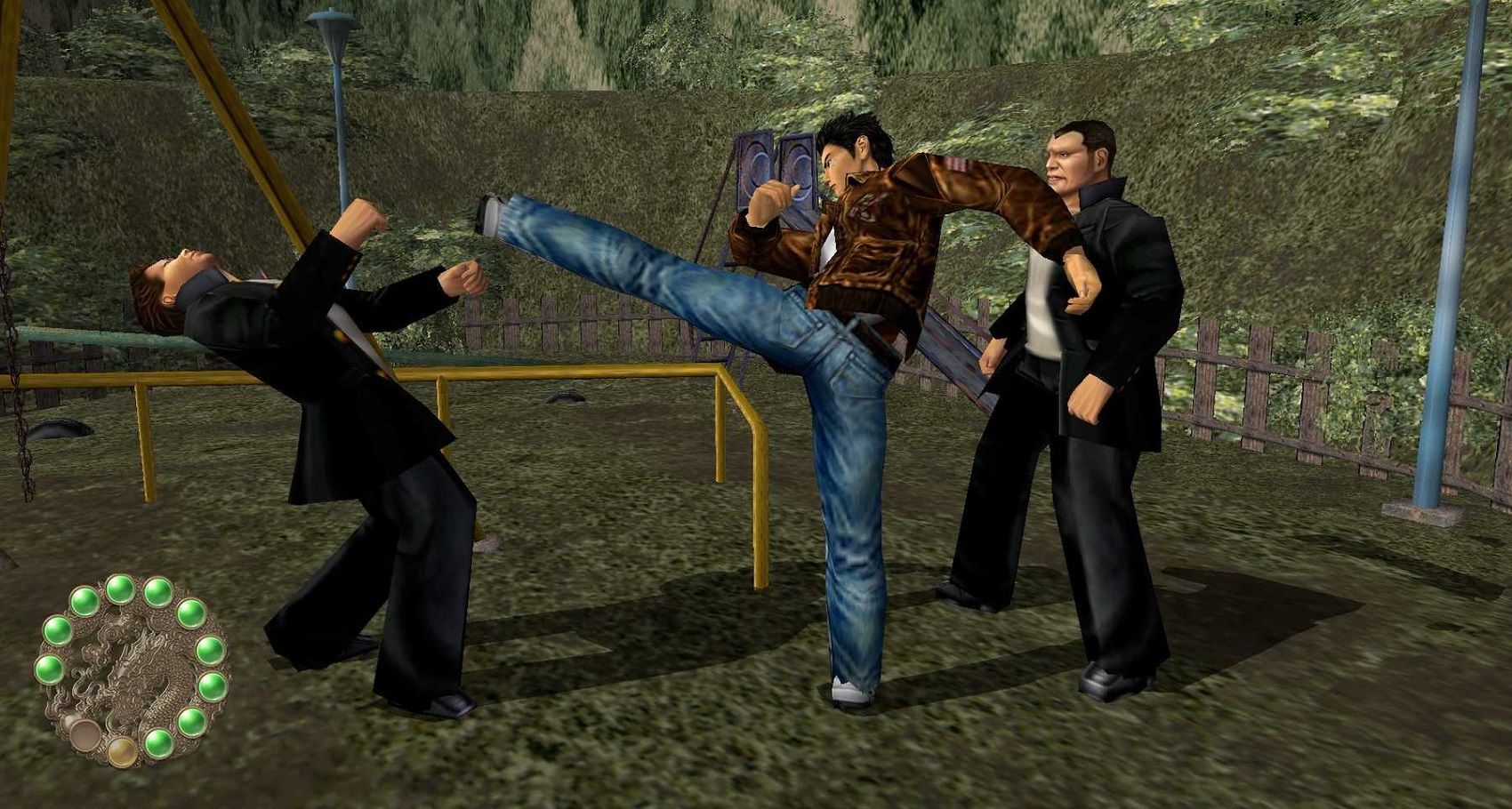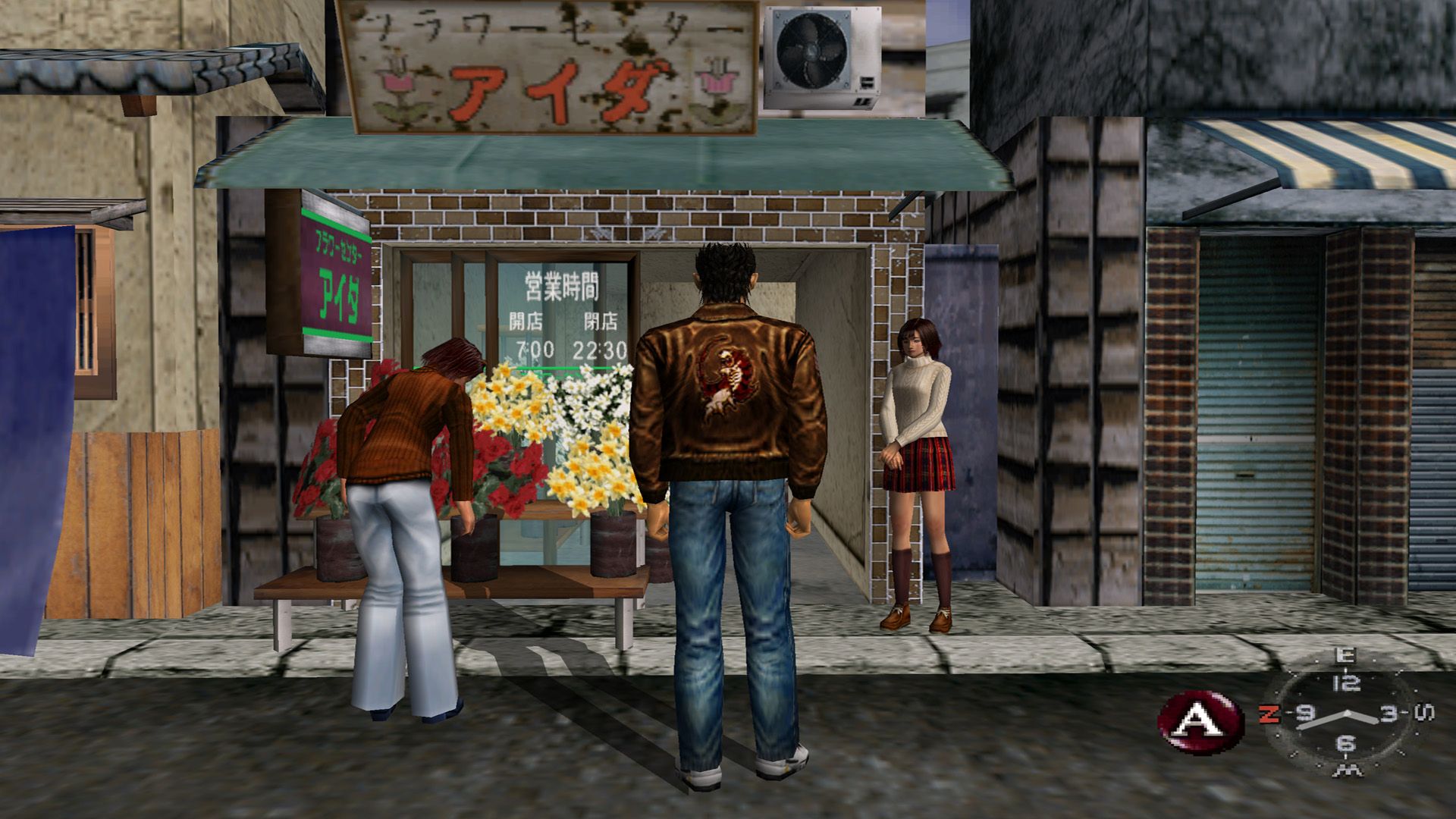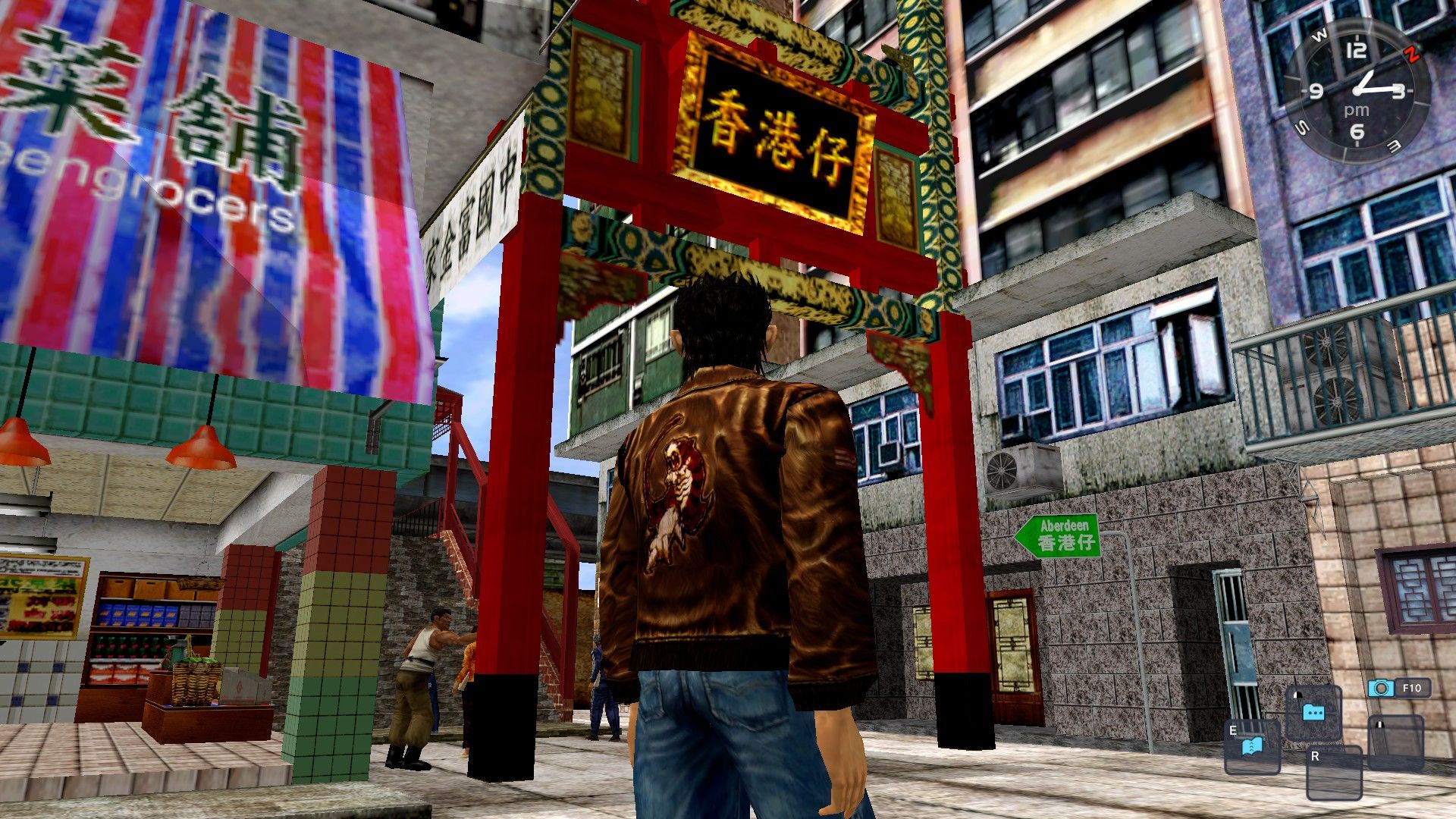Cringe culture is quite possibly the worst thing to happen to critique. It’s the concept that anything that is earnest and believes in itself is embarrassing. Based games are self-aware, self-deprecating, and apathetic. Just like us. Otherwise, we’re pretty cringe, too.
This could be partly why the first Shenmue game hasn’t stood the test of time for many. Those of us who enjoy it have to talk about embarrassing stuff like how the game makes us feel, rather than how we’d describe it if we were writing its Wikipedia entry. And sure, on the face of it, Shenmue has plenty to dunk on. The dialogue is clunky, with voice acting to match. The controls are awkward by modern standards too, and anyone playing it for the first time today may struggle to understand why it's so beloved. But Shenmue is full of so much charm, passion, love and ambition that we need to stop looking at it so cynically. It gave us a vision of what sandbox games could have been, and it’s a vision of the future that we probably won’t ever see again.
Shenmue was the most expensive game to make of its time, with an estimated budget of $70 million (around $117 million now with inflation). Some estimates say that every Dreamcast owner would have had to buy the game twice for it to turn a profit. Even though games with massive budgets are commonplace today, it’s hard to imagine anything like Shenmue ever getting greenlit. Admittedly, a third game was, but that was with almost two decades of hype and a ridiculously successful Kickstarter campaign.
One of Shenmue’s greatest strengths is how much needless content it's filled with. Arcade games, toy capsule collecting, special events like Christmas, dozens of fully voice-acted NPCs who aren’t relevant to the story at all having their own daily schedules around town - the beauty of Shenmue is how alive the world felt to be in.
Then there are sandbox games, which took a very different turn. Instead, the focus was on how big the map would be, rather than how it felt to travel through it - because then you can put big numbers in the ads.
We’re not used to this anymore, to the extent that we forgive these ‘cosmetic’ or ‘additional’ features being hidden behind a paywall. Fun extras aren’t ways to make a game feel more alive, they’re merely content. For the most dramatic examples, look at the fighting game genre. No time for stupid minigames like Motor Kombat or a daft story mode like the Subspace Emissary; you now have to shell out another tenner just to get characters that have been in the series for years.
But that’s Shenmue director Yu Suzuki’s entire ethos. He and his team put all of these things in Shenmue because they can, and that alone makes it deserving of so much more love than it gets. And just so we can appreciate their dedication Shenmue pioneered and popularised, amongst other things, Quick Time Events, day/night cycles, calendar events (like seasons, weather changes, in-game holiday events), NPCs with personalised schedules, and the foundation-shifting idea of 3D open worlds.
They’re just the things we can quantify. There’s also the fact that it’s proudly slow-paced by design, rather than action-oriented. It keeps you engaged by lovingly recreating 1980s Yokosuka rather than through mindlessly beating up corridors full of goons. You’re fighting for a reason. Your opponents are people who are motivated to beat you up, and not nameless bandits you’ll randomly run into.
This is something that games ignore even today. Violence is a safe, engaging gameplay loop, so why experiment with anything else? We’re just so used to the tonal dissonance that it creates. Uncharted is about running around, finding hidden treasures, and cracking wise. But you’ll also wipe out an entire island’s population while you’re Han Solo-ing it up on your treasure hunt. These deaths are never addressed in the story because they aren’t part of the story, they’re part of the game, and never the two shall meet.
This ties in with another critique I see of Shenmue, that it “wastes the player's time”. But it doesn’t, it just isn’t a game about beating up nameless enemies all day. It’s about immersing yourself in Ryu’s day-to-day life in a world that feels alive.
At its worst, this attitude makes us dangerously narrow-minded, as it reduces games to merely a product. Not only will far too many games offer the constant feedback loop of violence in the name of fun with no substance beneath it, but just try and bring up a game’s representation of sexualities or culture. If you’re met with any criticism that rises above verbal abuse, you’re told to focus on “real” features, like how good the graphics are.
Believe it or not, feelings are good. We don’t get game reviews by listing off a title’s features and throwing it into an algorithm that spits out a score. I’ve seen you all defend Cyberpunk 2077 recently, and I know you’re not doing it because Night City is totally everything that was promised at E3.
If Shenmue dropped today, it would have been lucky to go the way of Cyberpunk. Hell, most rough games are lucky to go from being a huge, industry-shaking disappointment, to a pretty decent patch that pleases most. In reality, Shenmue would probably have been ditched, possibly even before it launched. We live in a world where Marvel’s Guardians of the Galaxy, a critical success that sold millions, disappointed its publisher. That’s not a healthy place to be in.
No game exists in a bubble, and Shenmue is proof of that. While it never made its money back, it inspired a genre that other games would refine, with Yazuka being the best example. We’d be a lot worse off without it.
In an industry that can often be so cynical and hostile, Shenmue is gaming at its most sincere. It was Cyberpunk’s ambition without the dodgy multimillion PR campaign. It was made by a bunch of game devs in the late ‘90s hyped to recreate a few streets in a small town. It’s a game where you can build relationships with NPCs for no reason. You can look after a cat, collect toys, and play in an arcade, and none of it has an impact on the story, or costs us anything extra.
Yes, Shenmue is often pretentious, and easy to make fun of. The Quick Time Events aren’t great. The story isn’t as groundbreaking as it thinks it is. But every little nook and cranny was built to impress. It didn’t pretend to be something it isn’t, and it didn’t shake players down for any more cash than other games were charging. It took brave steps for sandbox games, and experimented with a bunch of features so other devs wouldn’t have to.
By the rules of capitalism, it’s a complete failure. But for the creativity and passion it represents, it deserves our respect.

